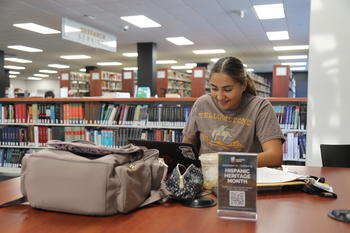
Tips for students to be successful in Occupational Therapy Graduate School
- Keep your brain happy! How?
- Be social, talk, study, and ask questions of your classmates and professors
- Focus on time management to include a well-balanced routine of SHLEEZZ (Studying, healthy leisure, eating, exercise, and sleeping or ZZ.)
- There is a different level of learning than what was required for high school and undergraduate college. The learning was focused on lower levels of learning on the Blooms Taxonomy learning scale during high school or undergraduate. Whereas graduate school requires learning how to synthesize and apply the newly learned information into a scenario or potential client. Building critical thinking skills helps you to think through cases to determine what is the best plan of action for that specific case or client.
Know the difference between memorizing and learning!
- Studying is memorizing information for an exam. Whereas learning is when you can understand it and apply it as needed.
- Studying is what the student does the night before the test to get an A; learning is what the student does when they know they will have to use that material later. Studying is like renting the information for the test & falling behind on your payments. Right after the test, the information is repossessed.
- Studying is focusing on the what's and learning is focusing on the how’s, whys and what ifs. Examples apply the study material to how is it used in occupational therapy, what is the importance/relevance of this study material.
- Students need to do this study cycle:
- Preview/read assigned materials prior to class
- Attend Class
- Review the course materials & your handwritten notes after each class
- Do intense Study Sessions throughout the week
- Assess your level of learning through flash cards or peers

Success in Occupational Therapy Courses requires the following:
- Read the required readings before the class lecture and take good handwritten notes during class. (Countless research supports this).
- Attend all classes and be punctual. Rushing into class sets the brain in panic mode and disrupts the learning cycle until you can settle down.
- When you study, study to understand the material. Ask yourself questions such as: 1) What does this mean? 2) How does this impact occupational performance? 3) What would be a good exam question on this material, etc.
- Read over your notes REGULARLY.
- Teach your peers concepts that you have figured out an effective way to illustrate that concept. Teaching is an excellent way to reinforce learning.
- Touch base with your course instructor(s) to clarify concepts for the coursework that they are instructing.
- Do not procrastinate on completing your assignments/studying. Again, if you are doing the assignments/studying at the last minute, you have put your brain in a panic mode and you will not be as successful with the outcomes.
- Touch base with your advisors to facilitate successful journey through the MSOT (Master of Science in Occupational Therapy) program.

